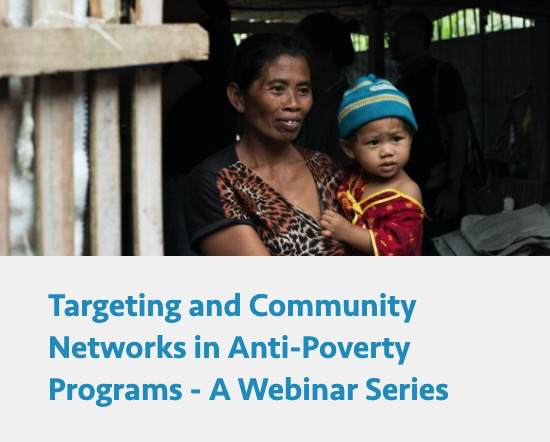The Role of Social Networks in Inequality, Immobility, and Inefficiency
SHARE THIS

| Matthew O. Jackson (Stanford University) | |
| Tuesday 8 December 2020 at 9:30 am (Hong Kong time, GMT +8) | |
|
Zoom |
We study the role of networks of referrals in job markets. Referrals screen candidates and lead to better matches and increased productivity, but disadvantage
We identify conditions under which distributing referrals more evenly across a population not only reduces inequality, but also increases productivity and improves economic mobility across generations. We also examine optimal policies, showing that one-time affirmative action policies have long-term impacts due to induced changes in future referrals. We also present data showing the relationship between various forms of connections and economic mobility.
About the speaker
Matthew O. Jackson is the William D. Eberle Professor of Economics at Stanford University and an external faculty member of the Santa Fe Institute. He was at Northwestern University and Caltech before joining Stanford, and received his BA from Princeton University in 1984 and PhD from Stanford in 1988. Jackson's research interests include game theory, microeconomic theory, and the study of social and economic networks, on which he has published many articles and the books `The Human Network’and `Social and Economic Networks'. He also teaches an online course on networks and co-teaches two others on game theory. Jackson is a Member of the National Academy of Sciences, a Fellow of the American Academy of Arts and Sciences, a Fellow of the Econometric Society, a Game Theory Society Fellow, and an Economic Theory Fellow, and his other honors include a Guggenheim Fellowship, the Social Choice and Welfare Prize, the von Neumann Award from Rajk Laszlo College, an honorary doctorate from Aix-Marseille University, the B.E.Press Arrow Prize for Senior Economists, and teaching awards. He has served on the editorial boards of Econometrica, Games and Economic Behavior, PNAS, the Review of Economic Design, and as the President of the Game Theory Society. Visit his personal website >>
To Attend the Event
The speaker will present for 1 hour and 15 minutes, and will take questions during the presentation.
The event will be held online via Zoom. ***** Register HERE******
Zoom will send you a confirmation email right away upon registration with a unique link to join the webinar. Reminder emails will also be sent 1 day and again 1 hour in advance of the event. Please check your spam box if you cannot find them in the inbox.
As part of our security measures, the webinar room will be locked about 20 minutes after the webinar starts.
This webinar will be recorded for internal use only.
Also, see here for advice from the university's IT office on Zoom best practices for attendees.
This webinar is part of a series of webinars to present cutting-edge research on Targeting and Community Networks in Anti-Poverty Programs
Get updates from HKUST IEMS







